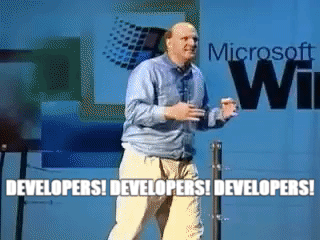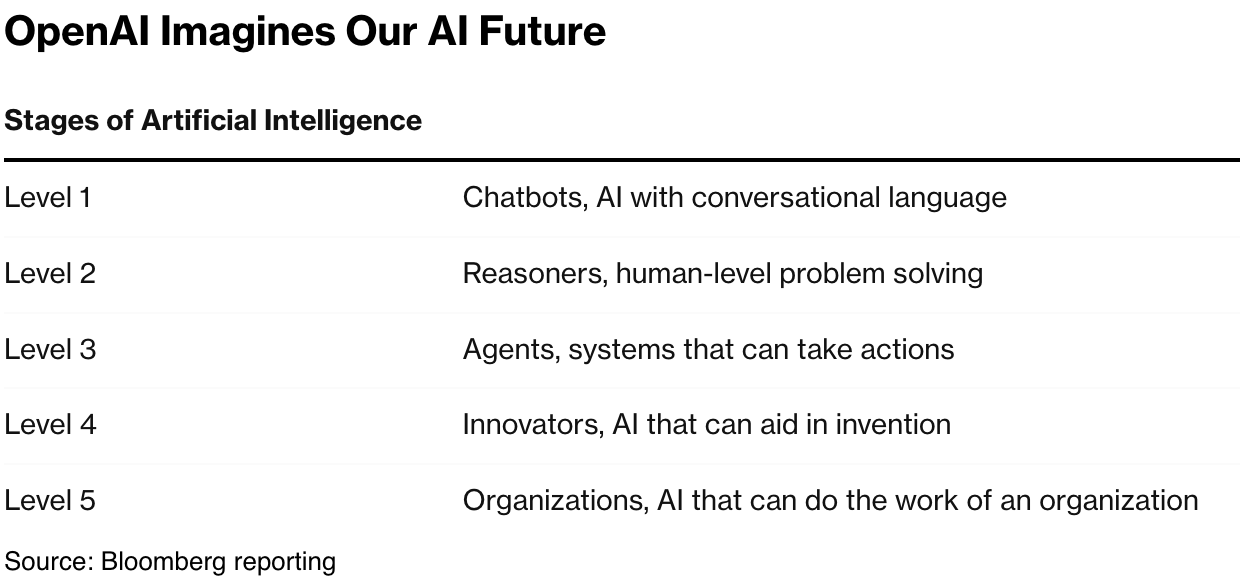
AI: AI benefits Developers first. RTZ #459
The Bigger Picture, Sunday 8/25/24
While the world is clamoring for examples where AI applications and services are making a difference in this AI Tech Wave with ramping AI investments, the answers seem to be at our fingertips. Specifically, the keyboards that millions of developers use to write and maintain the software that drives our world.
Evidence is accelerating that AI is boosting Developer productivity across the board. While making it easier for us all non-developers to use AI to ‘program’ for us behind the scenes. It’s a trend I’ve discussed from the early days here, and a worthwhile ‘Bigger Picture’ this Sunday. Let me explain.
The most recent example of AI boosting Developer productivity, is from Amazon CEO Andy Jassy, who posted this on Linkedin:
“One of the most tedious (but critical tasks) for software development teams is updating foundational software. It’s not new feature work, and it doesn’t feel like you’re moving the experience forward. As a result, this work is either dreaded or put off for more exciting work—or both.”
”Amazon Q, our GenAI assistant for software development, is trying to bring some light to this heaviness. We have a new code transformation capability, and here’s what we found when we integrated it into our internal systems and applied it to our needed Java upgrades:”
– “The average time to upgrade an application to Java 17 plummeted from what’s typically 50 developer-days to just a few hours. We estimate this has saved us the equivalent of 4,500 developer-years of work (yes, that number is crazy but, real).”
– “In under six months, we’ve been able to upgrade more than 50% of our production Java systems to modernized Java versions at a fraction of the usual time and effort. And, our developers shipped 79% of the auto-generated code reviews without any additional changes.”
– “The benefits go beyond how much effort we’ve saved developers. The upgrades have enhanced security and reduced infrastructure costs, providing an estimated $260M in annualized efficiency gains.”
”This is a great example of how large-scale enterprises can gain significant efficiencies in foundational software hygiene work by leveraging Amazon Q. It’s been a game changer for us, and not only do our Amazon teams plan to use this transformation capability more, but our Q team plans to add more transformations for developers to leverage.”
Remember that Amazon and Amazon AWS are one of the largest clusters of world-class Developers this side of OpenAI, Microsoft, Google, Apple, Meta, and Nvidia.
And this update from Amazon is above and beyond Amazon’s AI efforts with Alexa, and at Amazon AWS I’ve discussed in earlier posts.
Last fall, in a post titled “AI: Developers, Developers, Developers”, I wrote:
“…AI will make Developers far more productive, and make us all Developers too”.
“Tech is accelerating the need for software Developers. And this time, the AI Tech Wave is making Developers far more productive. Looking back, we’re likely to find that AI makes every Developer far more productive. While making us all ‘Developers’ just by using regular language. And it’s all happening at an accelerating pace. “
“As Microsoft’s former early CEO Steve Ballmer made famous in the 1990s with his full-throated chants in front of thousands for, “Developers, Developers, Developers!” He was spot on in hindsight, and is enjoying the rewards as a Microsoft shareholder to this day, having surpassed the Meta and Google founders for now. The iconic video is worth watching even today, to take in the raw energy and enthusiasm.”
“And the chants will echo on for some years to come with the AI wave. It’s notable that Microsoft again is finding a sweet spot for AI technology with Copilot Github. It’s AI tools for Developers. They’re finding that even the early LLM AI tools are boosting developer productivity by meaningful numbers.”
“This despite the irony that Foundation LLM AI ALSO makes us all programmers, as Nvidia co-founder and CEO Jensen Huang presciently said all the way back in 2017, that AI was eating software eating the world. The demand for AI developers is on, just as we saw the demand for mobile web developers after the Apple iPhone introduction in 2007″.
The latest reviews of Microsoft Copilot Github continue to show positive momentum, as ZDNet outlines in “Productivity and patience: How GitHub Copilot is expanding development horizons”:
“GitHub, the shared repository of choice for developers of all types, has reshaped the playing field for AI-based development with its Copilot offering. The organization estimates that many developers employ the tool to generate between 30% and 50% of the code they eventually put into production.”
“Recently, researchers at Scalefocus launched a four-month experiment, involving three teams, to measure the worthiness and viability of GitHub Copilot. Their conclusion was Copilot “accelerates the development process, reduces the time spent on routine coding tasks, and enhances productivity. On average, its introduction boosts productivity by up to 20%.”
The piece goes on to highlight the current drawbacks of AI developer tools as well. But like all AI apps and services today, what we have today are the WORST they will ever be. It’s all being improved at a rapid pace. It’s part of the OpenAI roadmap below
And as LLM AI gets better at AI Reasoning and Agentic tasks (discussed at length here, here and here), we will find AI turning us all into ‘developers’ as well. Creating customized applications for mainstream users with text and voice prompts.
It’s all early days of course. But the die is cast. We’re all on our way to being ‘Developers, Developers, Developers’. AI Talent it as critical an input going forward, from our chips to our data centers, and everything in between and atop.
That is the AI Bigger Picture this Sunday. Stay tuned.
(NOTE: The discussions here are for information purposes only, and not meant as investment advice at any time. Thanks for joining us here)








